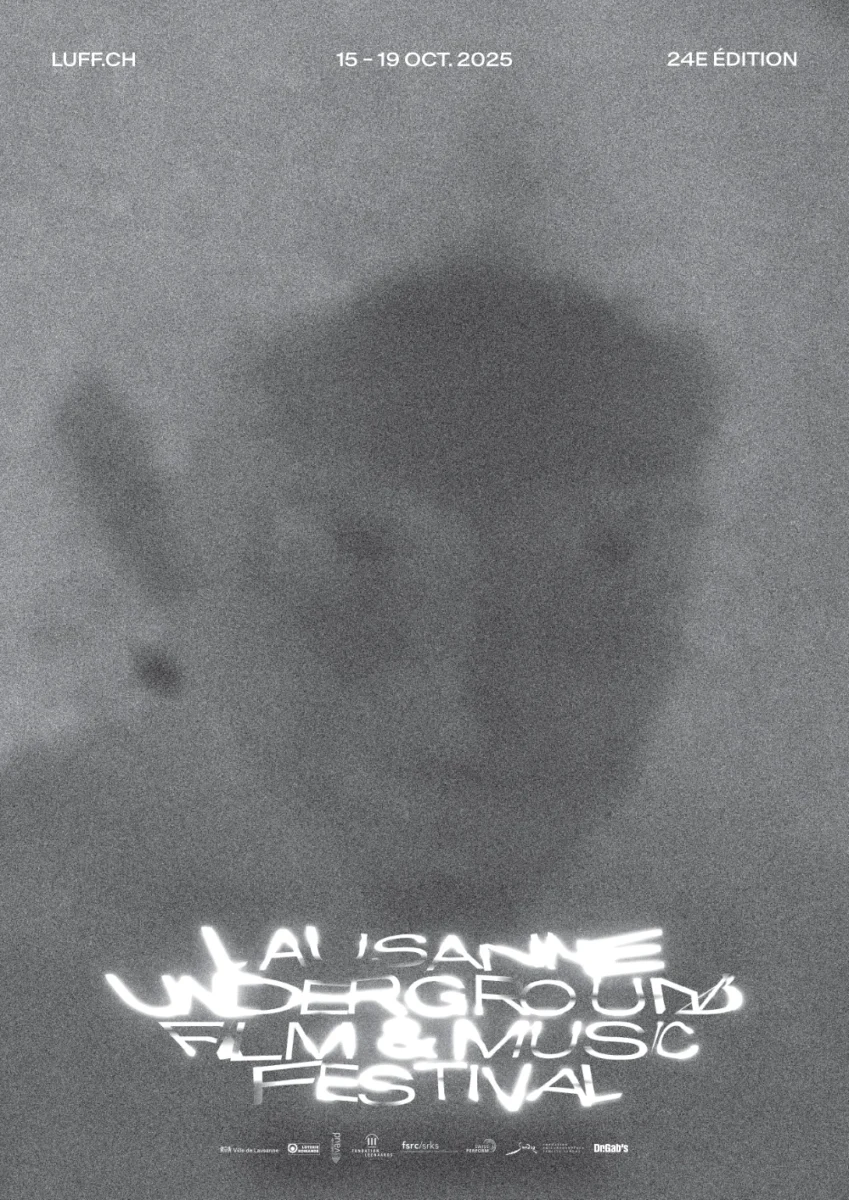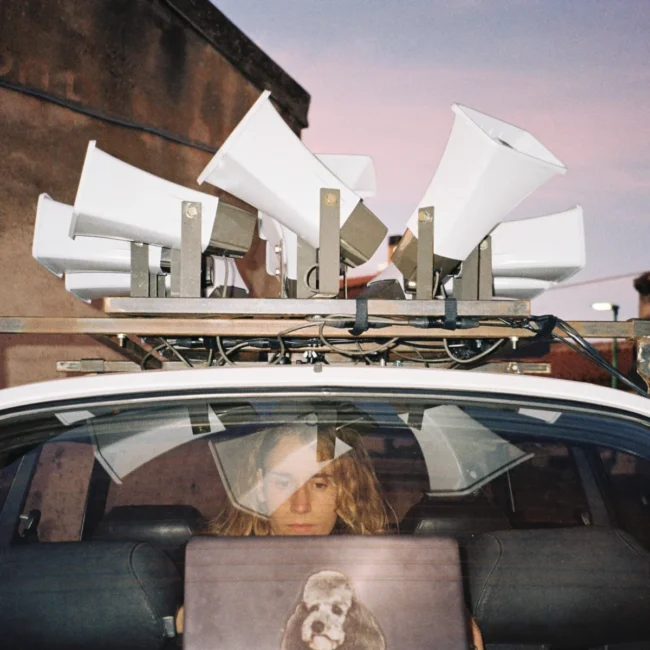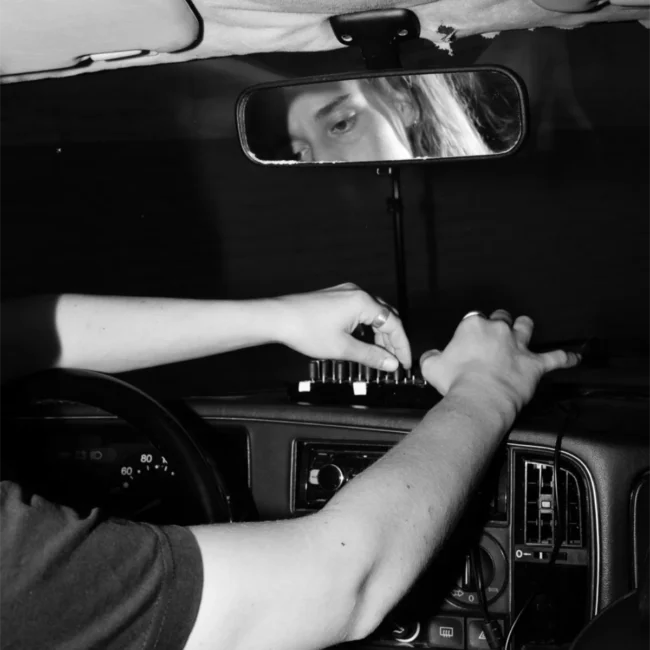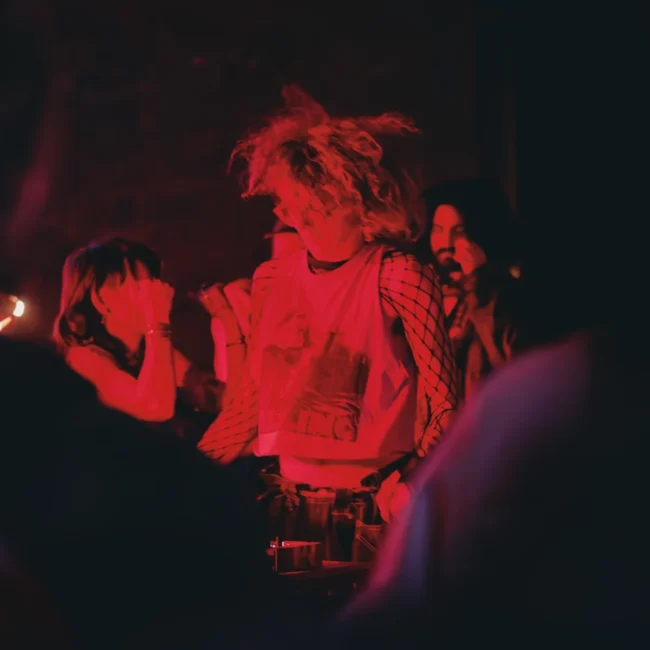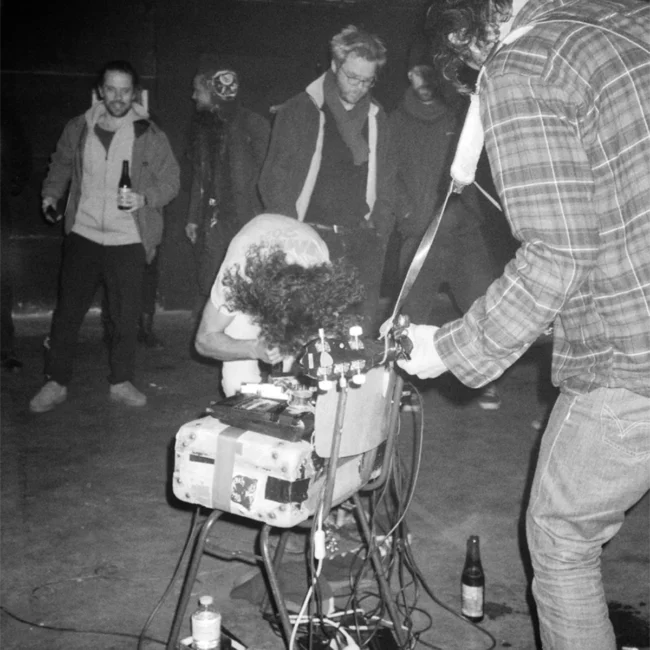Lausanne Underground Film & Music Festival (LUFF) returns for its 24th edition, reaffirming its status as one of Europe’s most uncompromising gatherings of experimental sound and radical cinema. Taking place between 15-19 October across the Casino de Montbenon and satellite venues, LUFF once again embraces the margins – bringing together artists, musicians and filmmakers to cultivate a space of dissent, discovery and collective creation.
This year’s programme is vast in scope: 60 screenings and 92 films, including 44 shorts and five feature films in international competition, alongside 21 sound performances in the Salle des Fêtes and nine on the Esplanade. Added to this are three workshops, three radio creations and documentaries, two book signings, an exhibition opening, a conference and countless interventions across the city. Together they form LUFF’s distinctive mix of striking, offbeat artistic visions – experimental, but essential.
Workshops offer direct immersion into alternative practices. Electroacoustic noise composer Sara Lehad introduces participants to the art of ‘no-input mixing‘, transforming the circuitry of the mixing desk into a self-generating instrument. Lehad also performs live at the Salle des Fêtes, expanding her dialogue with machines through feedback, effects pedals and archival recordings of Amazigh-Kabyle women. Labo19’s ‘Analog is Super8‘ workshop celebrates the tactile qualities of analogue cinema, while Beijing’s Aloe Records founders Zhang Cai and Sun Yizhou, joined by Yan Jun of Ghostmass, lead a session at HumuS Gallery exploring China’s non-music scene.
The Salle des Fêtes hosts LUFF’s most visceral sound programme. Ghostmass, the noise-doom-drone supergroup from China, make their European debut, embodying the intensity of Beijing’s underground. Lausanne artist Louis Schild unveils Myriads, a two-part composition for bass, accordion, synthesizer and drums, premiering at LUFF before its release on record.
The Esplanade serves as LUFF’s free-entry gateway, drawing audiences into nightly chaos under the Chapiteau and in the open air. Highlights include Ugné Uma’s fractured blend of alternative RnB and broken jazz, the percussive trance explosions of Tonto’s one-man show, and Amber Meulenijzer’s roaming Saab 900 fitted with twelve horn speakers, transformed into a nomadic sound system. Radio LUFF, broadcasted on LUFF’s website, extends the festival’s sonic reach with site-specific performances, no-fi experiments and artist interviews.
On the cinema side, LUFF turns to figures who defied orthodoxy. Japanese documentarian Kazuo Hara, known for his unflinching critiques of 1970s society, appears in person alongside author Stéphane du Mesnildot. Retrospectives revisit Robert Downey Sr.’s anarchic American satires and celebrate Bridgett M. Davis, presenting her landmark film Naked Acts – the first feature written, directed and self-distributed by an African-American woman.
Across five days of cinema, sound and shared practice, LUFF 2025 once again celebrates the underground as a space of resistance and renewal.
